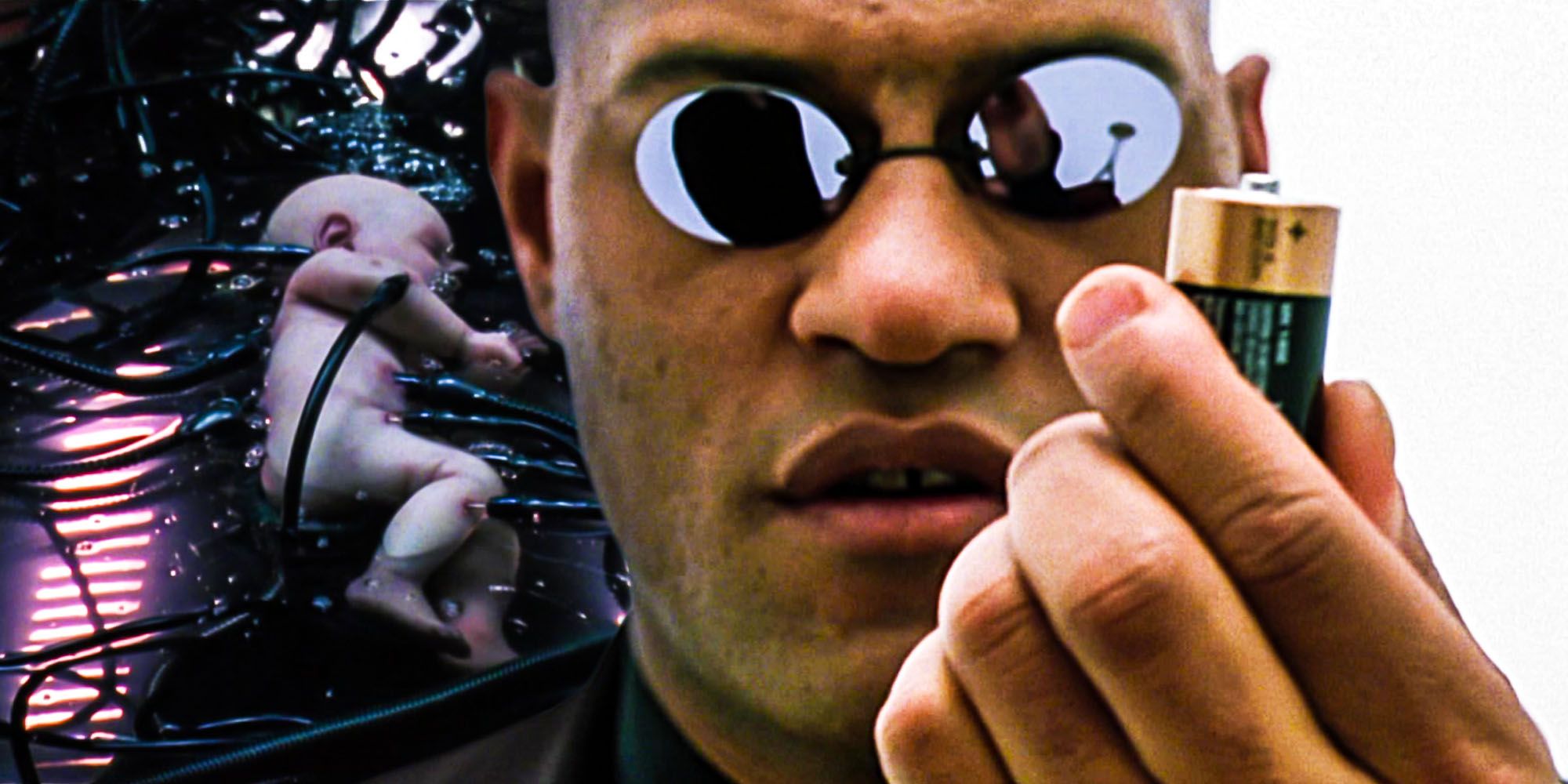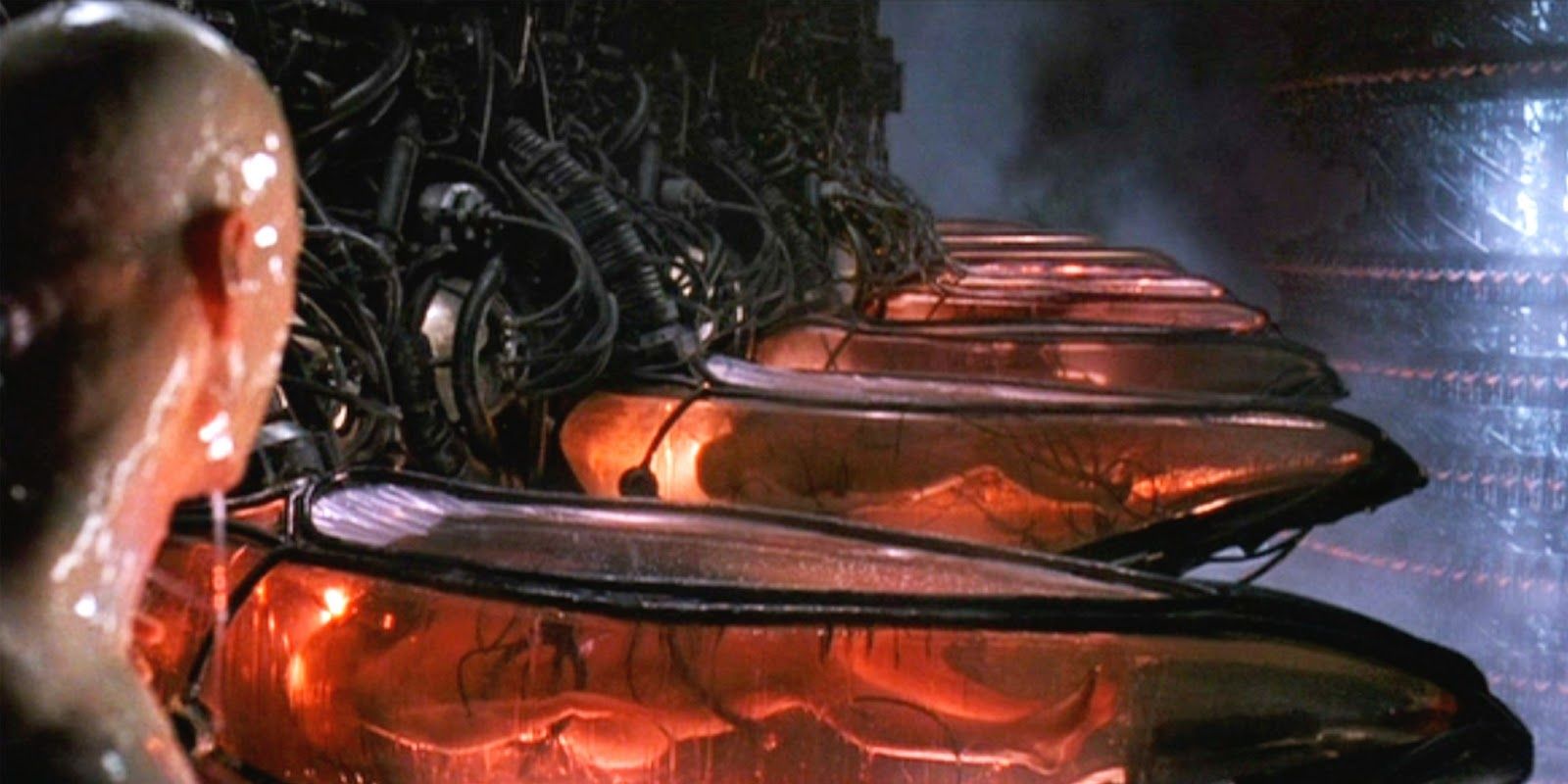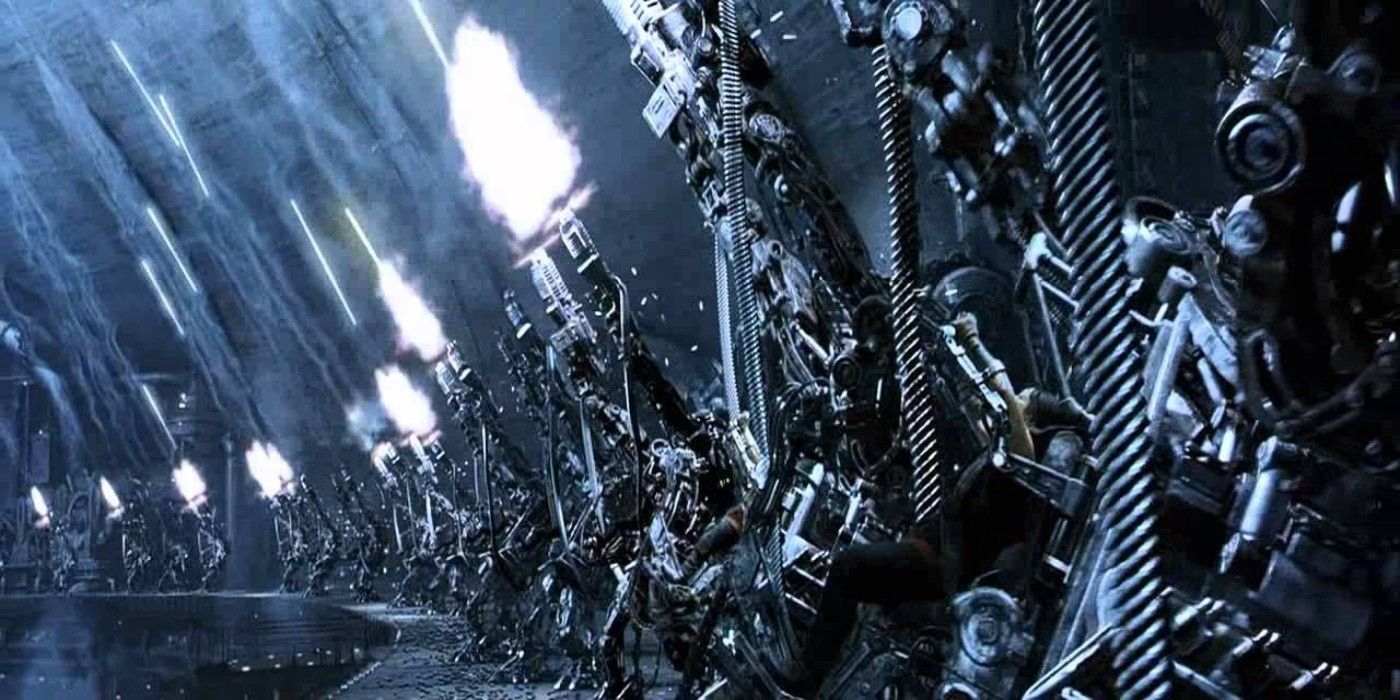The entire premise of The Matrix hinges on the idea of the Machines running on human power, a key reason behind the enslavement of the entire race, but could humans truly act as batteries for robots? This idea was explained to Neo (Keanu Reeves) by Morpheus (Laurence Fishburne) after the former chose the red pill and awakened to the stark cruelty of the real world. This gave way to the immensely surreal scene in which Neo awakened inside a harvest pod in a power plant, which featured interconnected circuitry facilitating the neural-interactive world of the matrix.
Ever since the inception of the human-machine war in the mid-22nd century, there had been a mad tussle for power between the two parties, with each side attempting to create a stronghold over the other. After several bouts of robot massacres and the trial of B1-66ER, tensions between the factions grew and led to the creation of the machine city, 01, which was later bombed by the humans. However, the tide soon turned in favor of the Machines, who quickly began experimentation on human prisoners of war.
At this juncture, the machines realized that they could exploit the bio-electric, thermal, and kinetic energies of the human body and harvest them for their own means. However, how scientifically viable is this premise, and does it make any sense for the Machines to do so? Here’s a deep dive into the question of whether robots can really run on human power, as shown in the hyperreal world of The Matrix.
The Science Behind Fiction - Can Humans Actually Power Machines Like Batteries?
According to Morpheus’ explanation to Neo, the human body generates “more bioelectricity than a 120-volt battery and over 25,000 BTUs of body heat,” which is fused and harvested to power the Machines as a whole. However, when applied to the realm of reality, can this be rendered possible within a scientific premise, at least from a theoretical perspective? As per Ramamoorthy Ramesh from Berkeley's Department of Materials Science and Engineering (via Esquire), the success rate of this premise is entirely dependent on the amount of power the machines, in general, would require. Ramamoorthy further clarifies this stance by shining light on ongoing research projects that aim to convert base-level human energy to power small appliances, using electrical charge residing within human bones, protein, and DNA.
When measured directly against the context of the Matrix, which features complex, fleshed-out Machines such as Agent Smith, it seems rather unlikely that the energies generated by the human body would be enough to power the Machine race. The process of conversion itself is pretty convoluted and complex at best, as explained by Caltech-based visualization scientist Robert Hurt, who highlights the utter impracticality of the human-battery plan in The Matrix. Hurt explains that while humans do consume a lot of high-energy foods, the heat produced in the process is not nearly enough to consistently power a robot, as per the laws of thermodynamics and entropy. As energy can neither be created nor destroyed, it is nearly impossible for the Machines to power millions of Sentinels, Agents, and Programs in such a smoothly functioning manner.
Why The Human-Battery Plan By The Machines Does Not Sound Viable
Scientific accuracy aside, it makes little sense for the Machines to harvest energy from human bodies, as the mere existence of nuclear power within the world of The Matrix would ensure the existence of the Machine world. After the failure of Operation Dark Storm, the Machines started to create and deploy legions of new machine models, which were neither dependent on solar energy, nor assumed humanoid forms - the precursor of the Sentinels seen throughout The Matrix Trilogy. The intricate nature of these developments stands in opposition to the crude form of energy generated by the human body, hence, begging the question, why would the Machines create elaborate power plants filled by millions of harvest pods for a process that is neither practically nor thematically viable?
In his paper “Why are Humans used as Batteries (a power source) in the Matrix?,” David A. Wheeler posits that the reason why the Machines harvest human energy is not so much because of practical reasons, but it is more of a power move, a form of control and subjugation that ensures their established hierarchy in both worlds. Conversely, it might be possible that Morpheus simply misunderstood the purpose of the harvest pods, which could essentially be extracting mental and emotional energy from humans - something which the Machines inherently lack.
While programs such as The Architect and The Oracle in The Matrix are merely orchestrated bits of code, the blueprint of their emotional acumen is bound to be based on actual human responses and stimuli, which can be gauged by harvesting the intangible. Is the concept of the human battery more along the lines of shared consciousness, human instincts, and creativity? While there are no set answers, it will be interesting to see if the upcoming The Matrix 4 touches upon the subject of whether robots really run on human power and whether it leads to greater reveals in the context of the human-machine agenda.




